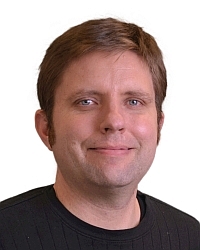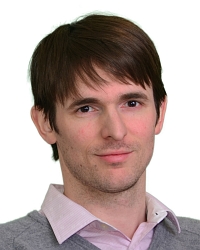TR2024-030
Why does music source separation benefit from cacophony?
-
- , "Why does music source separation benefit from cacophony?", IEEE ICASSP Satellite Workshop on Explainable Machine Learning for Speech and Audio (XAI-SA), DOI: 10.1109/ICASSPW62465.2024.10669899, March 2024, pp. 873-877.BibTeX TR2024-030 PDF Video
- @inproceedings{Jeon2024mar,
- author = {Jeon, Chang-Bin and Wichern, Gordon and Germain, François G and {Le Roux}, Jonathan},
- title = {{Why does music source separation benefit from cacophony?}},
- booktitle = {IEEE ICASSP Satellite Workshop on Explainable Machine Learning for Speech and Audio (XAI-SA)},
- year = 2024,
- pages = {873--877},
- month = mar,
- publisher = {IEEE},
- doi = {10.1109/ICASSPW62465.2024.10669899},
- isbn = {979-8-3503-7451-3},
- url = {https://www.merl.com/publications/TR2024-030}
- }
- , "Why does music source separation benefit from cacophony?", IEEE ICASSP Satellite Workshop on Explainable Machine Learning for Speech and Audio (XAI-SA), DOI: 10.1109/ICASSPW62465.2024.10669899, March 2024, pp. 873-877.
-
MERL Contacts:
-
Research Areas:
Abstract:
In music source separation, a standard training data augmentation procedure is to create new training samples by randomly combining instrument stems from different songs. These random mixes have mismatched characteristics compared to real music, e.g., the different stems do not have consistent beat or tonality, resulting in a ca- cophony. In this work, we investigate why random mixing is effective when training a state-of-the-art music source separation model in spite of the apparent distribution shift it creates. Additionally, we examine why performance levels off despite potentially limitless combinations, and examine the sensitivity of music source separa- tion performance to differences in beat and tonality of the instrumental sources in a mixture.
Related News & Events
-
EVENT MERL Contributes to ICASSP 2024 Date: Sunday, April 14, 2024 - , April 19, 2024
Location: Seoul, South Korea
MERL Contacts: Petros T. Boufounos; Chiori Hori; Toshiaki Koike-Akino; Jonathan Le Roux; Hassan Mansour; Kieran Parsons; Joshua Rapp; Anthony Vetro; Pu (Perry) Wang; Gordon Wichern
Research Areas: Artificial Intelligence, Computational Sensing, Machine Learning, Robotics, Signal Processing, Speech & AudioBrief- MERL has made numerous contributions to both the organization and technical program of ICASSP 2024, which is being held in Seoul, Korea from April 14-19, 2024.
Sponsorship and Awards
MERL is proud to be a Bronze Patron of the conference and will participate in the student job fair on Thursday, April 18. Please join this session to learn more about employment opportunities at MERL, including openings for research scientists, post-docs, and interns.
MERL is pleased to be the sponsor of two IEEE Awards that will be presented at the conference. We congratulate Prof. Stéphane G. Mallat, the recipient of the 2024 IEEE Fourier Award for Signal Processing, and Prof. Keiichi Tokuda, the recipient of the 2024 IEEE James L. Flanagan Speech and Audio Processing Award.
Jonathan Le Roux, MERL Speech and Audio Senior Team Leader, will also be recognized during the Awards Ceremony for his recent elevation to IEEE Fellow.
Technical Program
MERL will present 13 papers in the main conference on a wide range of topics including automated audio captioning, speech separation, audio generative models, speech and sound synthesis, spatial audio reproduction, multimodal indoor monitoring, radar imaging, depth estimation, physics-informed machine learning, and integrated sensing and communications (ISAC). Three workshop papers have also been accepted for presentation on audio-visual speaker diarization, music source separation, and music generative models.
Perry Wang is the co-organizer of the Workshop on Signal Processing and Machine Learning Advances in Automotive Radars (SPLAR), held on Sunday, April 14. It features keynote talks from leaders in both academia and industry, peer-reviewed workshop papers, and lightning talks from ICASSP regular tracks on signal processing and machine learning for automotive radar and, more generally, radar perception.
Gordon Wichern will present an invited keynote talk on analyzing and interpreting audio deep learning models at the Workshop on Explainable Machine Learning for Speech and Audio (XAI-SA), held on Monday, April 15. He will also appear in a panel discussion on interpretable audio AI at the workshop.
Perry Wang also co-organizes a two-part special session on Next-Generation Wi-Fi Sensing (SS-L9 and SS-L13) which will be held on Thursday afternoon, April 18. The special session includes papers on PHY-layer oriented signal processing and data-driven deep learning advances, and supports upcoming 802.11bf WLAN Sensing Standardization activities.
Petros Boufounos is participating as a mentor in ICASSP’s Micro-Mentoring Experience Program (MiME).
About ICASSP
ICASSP is the flagship conference of the IEEE Signal Processing Society, and the world's largest and most comprehensive technical conference focused on the research advances and latest technological development in signal and information processing. The event attracts more than 3000 participants.
- MERL has made numerous contributions to both the organization and technical program of ICASSP 2024, which is being held in Seoul, Korea from April 14-19, 2024.

